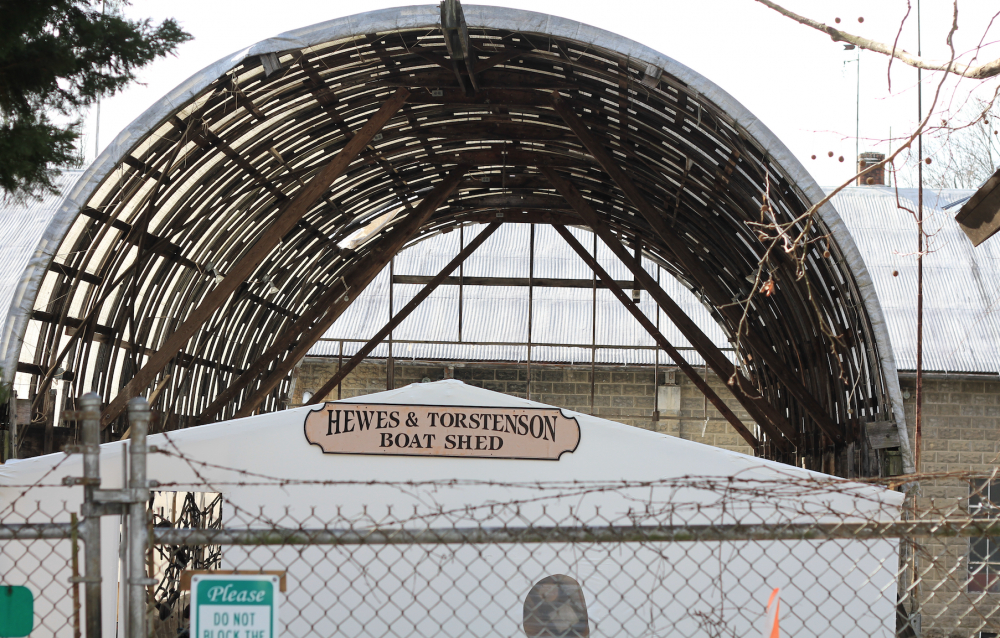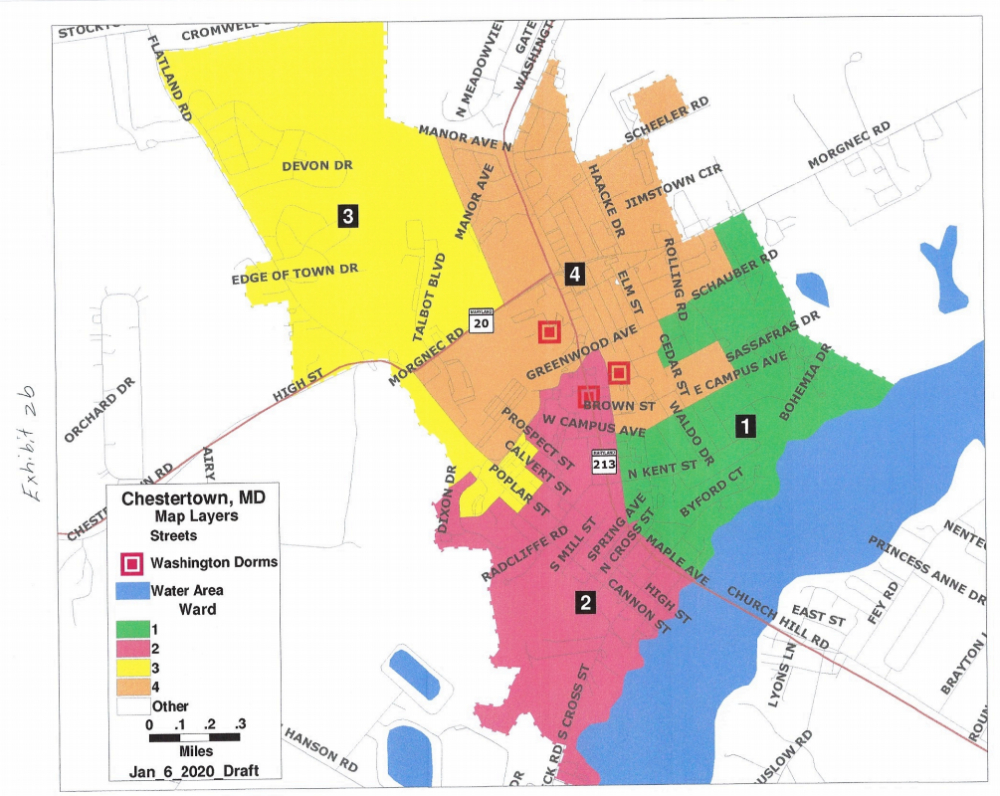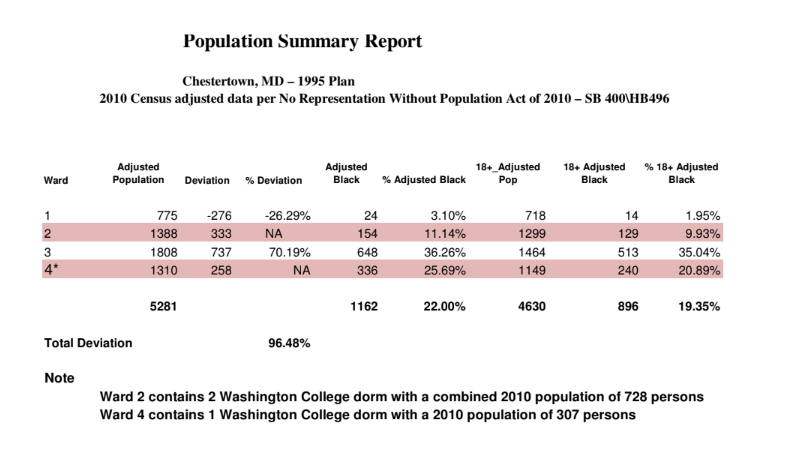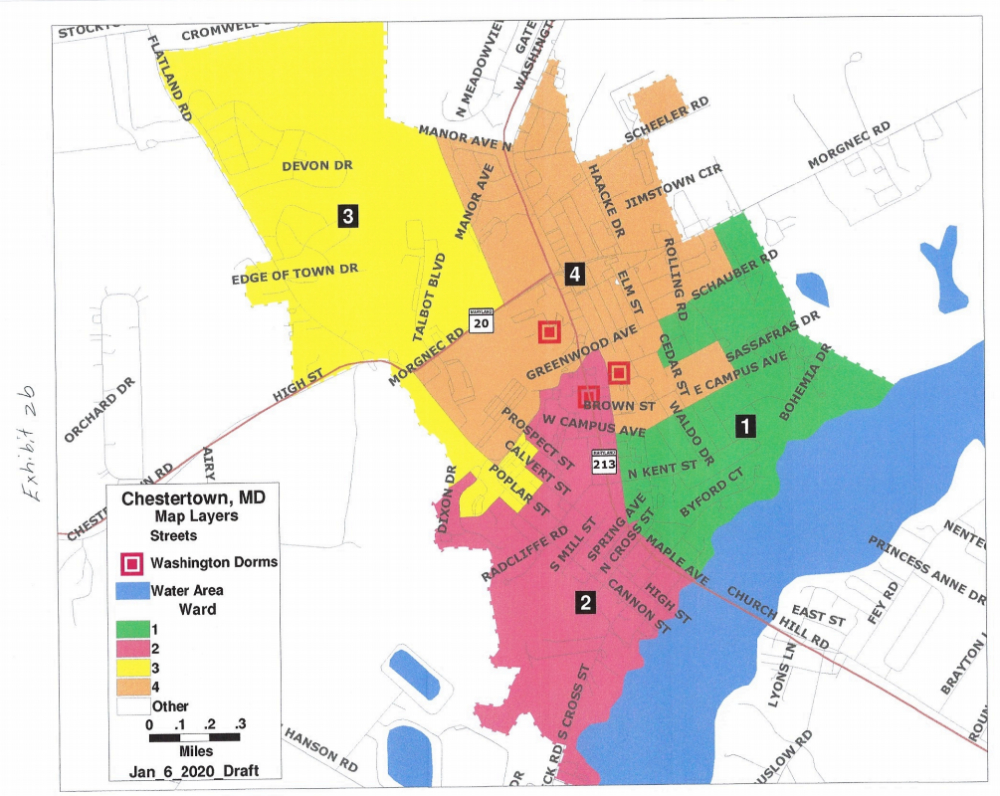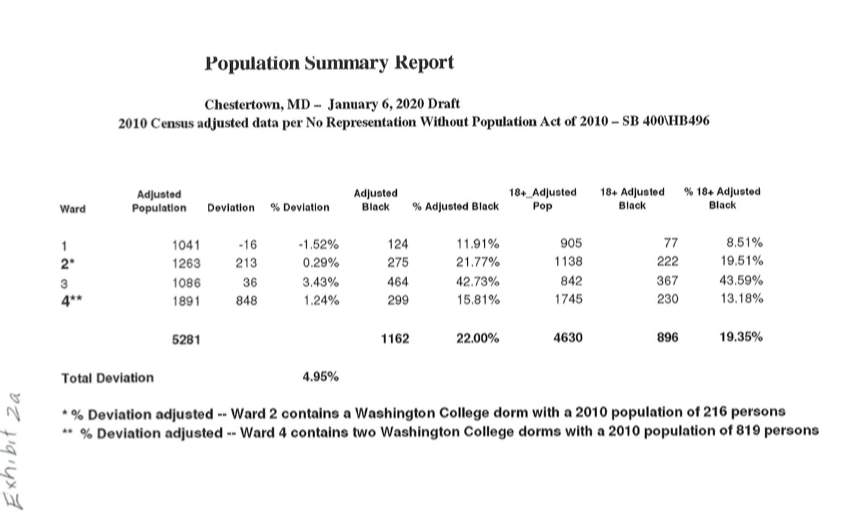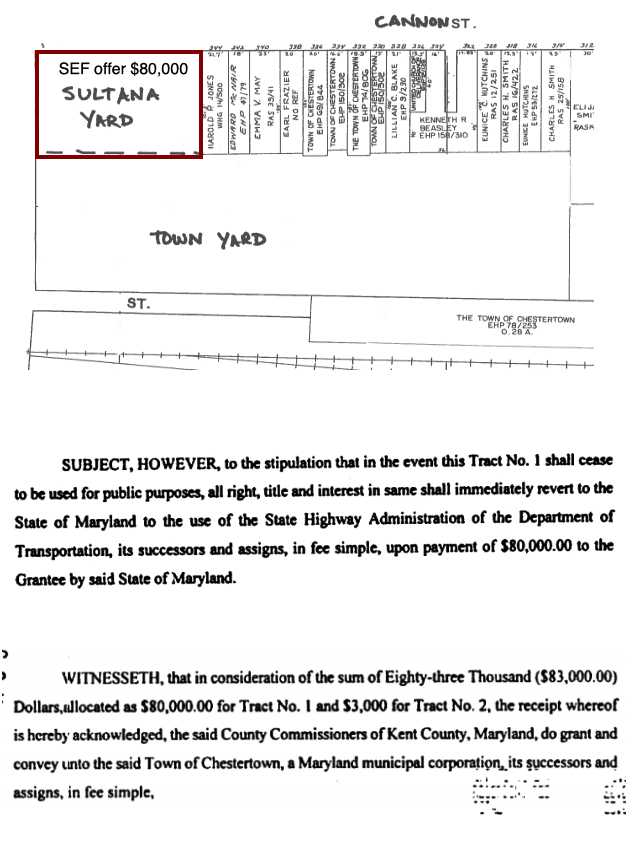A group of citizens has come together to chart a future for 2 acres of town owned property at the corner of Cannon and Mill Streets, where the town’s maintenance yard and the Sultana’s shipyard are located.
“It’s time to rethink the use of this property,” said Barbara Jorgenson of the MilCan Neighborhood Association at the Jan. 27 council meeting. “In fact, we need to look at our own comprehensive plan which does anticipate the redevelopment of this property.”
“Town Yard and Sultana Boat Yard: During the recent comprehensive rezoning, the zoning of the Town Yard parcel was split to create a C-2 Downtown Commercial area on the downtown half of the parcel, and RB Professional Office on the Mill Street half of the parcel,” says Chestertown’s 2015 comprehensive plan, page 37. “It is anticipated that the Town Yard will be moved within the next five years to a new location more appropriate to its industrial function, such as Talbot Boulevard. This will create the opportunity to build a mixed-use development with residential, office and commercial uses.”
The Sultana Education Foundation has leased the publicly owned property from the town for $1 a year since 1997 to support its educational programs.
“This property could actually be a key to Chestertown turning the corner on its budgetary problem and supporting downtown growth in a way that will support downtown businesses and expand our tax base,” Jorgenson said.
She said it was the residents of Chestertown’s job to determine the best use of publicly owned land.
She asked the council to give “a nod” to a charrette “to determine what should be happening with this property” and to understand any problems with it.
“We hope the town council will cooperate with this,” she said. “This is the last big piece of property within walking distance of downtown that is available.”
SEF made an offer to buy the property in late October but it was not brought to the Town Council until their first meeting of 2020–on the direction of Town Manager Bill Ingersoll, who didn’t think the time remaining in the year was enough to transfer the property to SEF.
Ingersoll said he differed the issue for the new council in January. However, it was learned recently that Ingersoll discussed the sale of the shipyard with SEF in April of 2019 and council members were not made aware until the October offer was made.
In an email to councilmembers on Oct. 30, Ingersol said a condition of the sale would be that the shipyard go to SEF.
” If you wish to proceed, the property would be declared surplus in an ordinance with a condition that the sale be to the present lessee,” Ingersoll wrote.
In her letter submitted into the record Monday, Jorgenson said, “It is for us to inform Town Management and our elected Town Council members what we desire to have happen to our property, not the other way around.”
Sultana President Drew McMullen encouraged the town at the Jan. 6 council meeting to find the best use for the shipyard.
“If there’s a way for the town to go out and make hay with this property, over and above what we can do with it, you should do it,” he said at the Jan. 6 meeting. “We are not saying we have any right to this property whatsoever. We just have a need for it, I’m not sure anyone else does.”
See the full letter below from the MilCan Neighborhood Association below:
Don’t miss the latest! You can subscribe to The Chestertown Spy‘s free Daily Intelligence Report here
